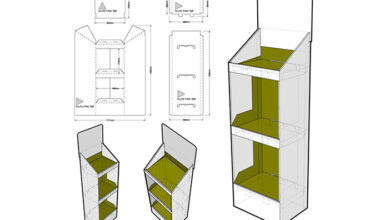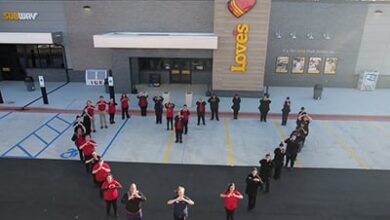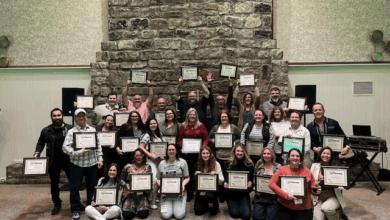Adjust Presentations To Fit Your Customer’s ‘Type’
A customer’s generation and personality style can influence how you should communicate with them to increase your sales success.

As I talk to some of the best RV salespeople in RV dealerships across the country, I find one common theme consistent among most of them — once they identify the selling style that best works for them, they use it on every customer who walks in the front door.
They tend to rely on the same “canned” first words and conversational style in the meet-and-greet with each new customer, and over time, they develop the same feature/benefits product demonstration style that is most comfortable to them, because it helps them relax and feel a sense of confidence.
While using this strategy can help the salesperson refine their communication skills with some customers, it could turn out to actually be offensive to others.
Why? Because not all customers are alike. They come from different generations, backgrounds and family dynamics, and have different personalities, RV knowledge, education, preferences and comfort levels in the way they like to talk and be talked to.
The best dealerships spend a great deal of time educating their sales staff on product knowledge and whatever selling system they are committed to, but even the best spend little or no time on how to identify the type of customer in front of them and how to adjust their communications and presentations to fit how each particular customer prefers to hear it. This obstacle frequently stands in the way of the salesperson helping the customer feel the comfort, rapport and trust they must have to be willing to listen to what the salesperson has to say.
Many of us have heard the phrase “opposites attract.” That may be true in romantic relationships, but in my experience in working with both salespeople and customers, it’s not true at all. For the anxious customer who wasn’t treated very well by the dealership down the road, they will walk in with at least some anxiety even before the salesperson utters one word.
When this happens, there are a few different assessments a salesperson can make to quickly adjust their communications and presentations to best fit the customer they’ve just met: generational assessment or personality assessment.
In order for this to work, the salesperson must set aside their preferred way to communicate and take an open-minded approach by asking questions, listening and quickly assessing the type of customer standing in front of them.
Use this quick guide to help when taking a generational assessment approach with your customer:
Postwar (born 1928-1945)
Tend to trust more quickly because they were raised to do things the right way, with integrity. As a result, they are usually kind, friendly and great to work with. They like information to be short and sweet, and prefer an honest, professional delivery of information.
Baby Boomers (born 1946-1964)
Have some of the tendencies of the postwar group but are savvy enough to communicate through text, quick videos and internet information. They feel they are deserving of your time, respect and honesty. They will take a bit longer to trust you, but it will be rock solid once it’s established.
Gen X (born 1965-1979)
Although they are typically in the highest earning years of their lives, they are often quite money-conscious, so staying in their budget and focusing on RVs that are on sale is very important to them. They are comfortable bumping themselves up to a higher-priced product but are not comfortable with the salesperson trying to do it.
Millennials (born 1980-1996)
My experience is that this group is more laser focused on money than any other. They are looking to save money first, even if it means sacrificing quality to do so. This group suffers from buyer’s remorse more than any other, so you will need to work hard to prove how and why paying more for upgraded features and options will benefit them.
Another way to quickly determine who your customer is and how best to communicate with them is to talk less and listen more, to determine the type of people they are and then adjust how you communicate and present your product based on that.
In addition, with this approach, if a married couple walks in the dealership, you will need to identify who the real decision-maker is, identify their type and adjust your communications to them. I have seen many cases where the husband appears to be (and thinks he is) the decision-maker, but the wife really is.
To identify this, you will need to be sensitive to not just what is said but also read the body language of both. Often, watching the wife’s body language to things the husband has just said is the clue you need.
Different customer types each have different tendencies, and each one requires you to identify the challenges you will face and the adjustments you need to make in how you communicate, present and work with them:
Analytical & Detail-Oriented
This customer will ask detailed questions that go far beyond product features and benefits. They will want documentation and proof, with facts and details to back up what you say. They will not move on to the next feature until they are completely satisfied that your answers are factual.
This customer will respond more positively to bringing in a sales manager as a technical resource and loves when you get a manufacturer rep on the phone who has intimate knowledge of how the RV they are interested in is built. With this customer, you must plan for longer sessions — at times double the time spent with the typical customer — because of all the questions they will ask.
Friendly, Warm & Amiable
This customer is more interested in liking you than trusting you and will ask about yourself or your family. They are kind, warm and gentle and must be handled with friendly, warm, compassionate communications that dance around the surface but won’t get into detail. They also won’t always tell you what they think.
You must only ask for specific wants, needs and budget after establishing a solid rapport and trust with them. It’s unwise to push too hard with this group, as they do not like hard selling or confrontation. It may take more than one visit to the dealership to get them to buy something.
Driver/Take-Charge Leader
This customer is easy to spot, as they will typically be direct and to the point. You will not need to be overly friendly with this customer, as they will appreciate you responding to them with direct, short and factual answers to their questions. Trying to expand too much information in answering their questions just to sound smarter will not sit well with them. If they want additional information, they will ask. They will come off as unfriendly but do not mean to, so be careful not to take it personally. It will be important to maintain professional but honest (and sometimes blunt) behavior, and they will respect that they could not intimidate you.
Expressive, Exceedingly Outgoing
This is the largest group of customers who will visit your dealership. They are outgoing, fun, social and energetic. They will also feed off your energy and enthusiasm, so if you are typically introverted and quiet, you will need to ramp it up a bit for this customer to respond to you. They love telling and hearing a good joke and having a good laugh.
Realizing that they often lose focus in what you’re talking about (because they are distracted) is a sure sign of this type of customer. You must match their enthusiasm, while sticking to business, and talk about things they find interesting. They aren’t great listeners, so you may need to confirm that they have heard key points in your presentation.
Regardless of whether you choose to identify what generation the customer might fall in or to determine their personality style, you should use one of the two to help you make the adjustments you need in how to communicate and present product, and what approach you use to eventually try to close the deal with them. Doing so will increase your success in achieving customer comfort, rapport and trust they need to feel safe enough to buy from you. Customers have proven time and time again that they prefer to buy from people who are similar to them.
If you haven’t tried this approach in the past, I encourage you to start today, and I’ll bet this not only helps your rapport building with customers but also with personal relationships.



